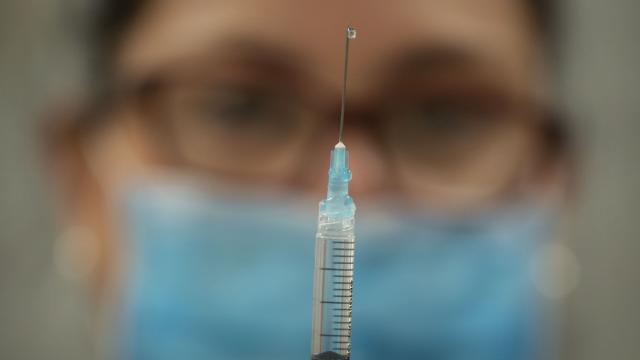The University of Queensland’s COVID-19 vaccine candidate, which has been in the works since February, is entering its human testing stage. The clinical trial will see 120 volunteers, aged between 18 and 55, given either the potential vaccine or a placebo and monitored for results.
The trials will take place in the Nucleus Network’s Brisbane Clinic and are expected to deliver results within three months.
The vaccine candidate was developed by Viroclinics Xplore and uses molecular clamp technology to “lock the ‘spike’ protein into a shape which allows the immune system to be able to recognise and then neutralise the virus”.
[related_content first=”1214304″]
It comes two months after pre-clinical tests produced promising results, with test subjects’ antibody responses appearing to be better than responses in recovered COVID-19 patients who hadn’t had the vaccine.
“The green light to move into this first phase of human trials follows extensive pre-clinical testing that started when we first selected our lead vaccine candidate on 14 February,” Professor Paul Young, the project’s co-leader, said in a media release.
“This testing showed that the vaccine was effective in inducing antibodies that were able to neutralise the virus. Further studies have shown that the vaccine was safe to give to people.”
The human trials mark the vaccine candidate’s entrance to the next phase of testing — Phase 1. Australia’s medical regulator, the Therapeutic Goods Administration (TGA), explains this phase can test the potential cure for between 100 to 300 participants. It would explore the vaccine’s clinical efficacy and how the body responds, and determine effective dosage amounts.
[related_content first=”1211650″]
If successful, the trial would move to the second phase where a larger participant pool of up to 3,000 people would help to determine the vaccine’s risk-benefit balance. Professor Young said it would be three months before the proposed vaccine enters this stage.
“We expect to have preliminary results after about three months, and if all goes well, we can move as fast as we can to the next stage in the vaccine’s development,” he said.
“That will be a larger trial with people from a range of ages, to ensure the vaccine works across the board.”
Rapid production the next challenge once a vaccine is found
But if the vaccine proves successful at that stage too, it will need to then go into production in order to be distributed to those who need it. In June, the university entered into a partnership with CSL, an Australian biotech company, as well as the international organisation spearheading the global approach to finding a vaccine, Coalition for Epidemic Preparedness Innovations (CEPI), in order to produce the millions of doses that would be required.
“Alongside CEPI, we announced a manufacturing partnership with CSL in June,” Professor Trent Munro, the project’s director, said.
“If things go to plan, CSL will rapidly advance production of tens of millions of doses and move the program into later stage clinical testing, regulatory approval, large-scale manufacture and distribution.”
That’s expected to happen later this year or in early 2021 if all goes according to plan. For now, we’ll have to live with our new coronavirus-affected existence.
[related_content first=”1214654″]
